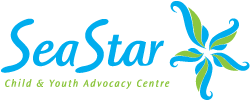How to respond

What should I do if a child or youth tells me they’re being hurt?
Do you know what to do if a child or youth discloses to you that they have or are being hurt? By knowing how to respond, you can make a critical difference in the life of a child or youth.
Stay calm
Your reaction matters. The child or youth may hesitate, or try to protect you from the information, if they think what they are saying is making you feel upset or angry.
Take a deep breath, and stay calm.
Listen
Listen openly. Let the child or youth lead the discussion, in their own words and at their own pace.
Don’t ask leading or probing questions, or press for lots of additional details.
Believe them
Thank them for sharing. Reassure them that you believe them, and that the abuse is not their fault.
Be honest. Tell them that you need to share what they have told you with other trusted adults who can make sure they are safe.
Don’t assume or promise things that are beyond your control (like, “The offender will go to jail”)
It might feel hard to know what to say after someone tells you they’ve been abused or assaulted. Being supportive and caring is the most important thing you can do.
Some examples of helpful responses include:
- “Thank you for telling me.”
- “I believe you.”
- “I’m sorry that happened to you.”
- “It’s not your fault.”
- “You were very brave to tell me. I know that must have been hard to do.”
- “You did the right thing by telling me.”
Even with best intentions, some reactions can unintentionally make a child feel blamed or judged. Try to avoid reactions that question “why” they responded the way they did, or imply the child did something wrong.
Some examples of responses to avoid include:
- “Why didn’t you say anything?”
- “Why didn’t you tell me sooner?”
- “What were you doing there in the first place?”
- “Are you telling the truth?”
- “I know that person, there’s no way they would do anything bad.”
Document
As soon as you are able, write down what the child or youth told you, in their exact words.
Don’t add your own assumptions to ‘fill in the blanks’.
Understand your Duty to Report and how to report a concern.
Anyone who has suspicion that a child under the age of 19 has been harmed, or is at risk of being harmed, has a legal duty to report those concerns immediately to the Department of Opportunities and Social Development or Mi’kmaw Family & Children’s Services. This includes concerns of physical abuse, sexual assault or abuse, neglect, emotional harm, or exposure to violence.
The fact sheet Children and Family Services Act: Duty to Report outlines these reporting requirements under the Nova Scotia Children and Family Services Act.
Take care of yourself
Hearing a disclosure of abuse can be difficult. Having support for yourself is important too.
Take some time to practice self-care, and reach out for help if you are having a hard time. You can find some information about options for getting help on our Mental Health page.
More information
Every individual in the province of Nova Scotia has a legal obligation to report concerns of abuse or neglect of a child under the age of 19 in order to ensure children are protected from harm. Failure to report is a criminal offence.
This fact sheet from the Department of Opportunities and Social Development outlines these legal “Duty to Report” requirements under sections 23, 24 and 25 of the Nova Scotia Children and Family Services Act.
This tip sheet from the Child Welfare Information Gateway provides more information about what child abuse and neglect is and what to do if you or a friend isn’t safe.
Visit: How you can help someone who is being abused or neglected
Online training about sexual violence and how to support someone who has survived it. Designed for service providers, friends, family members, neighbours, teachers, first responders, counselors, and anyone who is acting as a support person, or is concerned about sexual violence.
Visit: Supporting Survivors of Sexual Violence: A Nova Scotia Resource
